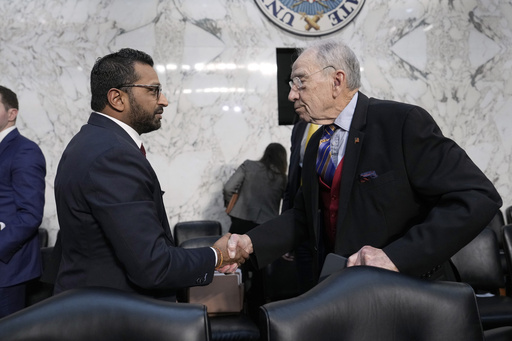
Kash Patel, selected by Donald Trump to take the helm of the FBI, possesses over $1 million in stock in a fashion firm originating from China. He created a nonprofit organization that allocated substantial funds to promotion while contributing minimally to its intended mission. Furthermore, Patel has provided consulting services to various foreign clients, including a Czech arms manufacturer that has faced criticism from top Republicans for alleged ties to U.S. adversaries.
Originally a congressional staffer of limited financial means, Patel’s trajectory changed significantly as he connected with Trump, utilizing his visibility to secure consulting contracts, corporate positions, and a presence as a prominent commentary voice within the MAGA community. According to an analysis of his government financial disclosures, this transformation has raised his net worth to an estimated $15 million.
Now awaiting Senate confirmation for the role of FBI director, Patel’s previous business affiliations are under heightened scrutiny from ethics experts and Democratic lawmakers. They raise concerns about potential conflicts of interest between his past clients and the mission of the FBI.
The complete extent of Patel’s foreign business dealings remains somewhat unclear, as he has only provided limited insights regarding his work in certain cases. However, his activities come to the forefront amid the Trump administration’s Justice Department decisions to scale back on laws related to foreign lobbying. This scrutiny is intensified by clients such as Shein, a clothing brand established in China, which U.S. authorities have identified as a national security challenge.
Despite multiple attempts to reach Patel, a spokeswoman has not provided any comments regarding these concerns. Craig Holman, a lobbyist with Public Citizen, a watchdog group, expressed that Patel’s business ventures present apparent issues that must be addressed ahead of his potential appointment as FBI director.
Patel, now 44, was not among Trump’s inner circle when he first occupied the White House. He previously worked as a public defender and as a counterterrorism prosecutor within the Justice Department before becoming part of the House Intelligence Committee during investigations into alleged connections between Russia and Trump’s 2016 campaign.
Skeptical of the investigation’s basis, Patel contributed to a controversial memo criticizing the FBI’s surveillance actions, which grabbed Trump’s attention. His involvement led to a series of prestigious roles within the administration as recognition of his loyalty to Trump grew.
After Trump’s 2020 electoral defeat, Patel capitalized on his association with the former president to amass significant wealth, branching into writing and conservative media as one of Trump’s fervent supporters while criticizing perceived governmental misconduct.
He also founded the Kash Foundation, intended to promote a healthier government-citizen relationship. Although the organization raised nearly $1.3 million in 2023, only $212,821 was allocated towards direct assistance for whistleblowers and families, prioritized in the foundation’s purpose. The organization also marketed merchandise, bringing in substantial funds for promotional efforts.
Patel’s financial disclosures reveal a range of income sources, including clients such as the Embassy of Qatar and Shein, along with a California firm involved in metal storage tank rentals. His consulting work often coincided with critical periods for those clients.
During his consulting role for The Czechoslovak Group, a foreign arms manufacturer, concerns arose due to their plans to acquire Vista Outdoor, a manufacturer of prominent ammunition brands. This proposed transaction drew public scrutiny from Senate Republicans, including future Vice President J.D. Vance, who flagged possible national security threats.
Moreover, Patel’s consulting relationship with Elite Depot Ltd., the parent company of Shein, also raises eyebrows. His consulting agreement began in April and concluded last month, during which he received stock valued between $1 million to $5 million that vests in the coming year. Patel has refrained from divesting from Elite Depot, suggesting that it only posed a “remote” chance of creating a conflict in his prospective role.
While Shein has since shifted its headquarters to Singapore, it continues to manufacture most of its products in China, directly contradicting Trump’s previous commitments to impose tariffs on Chinese exports, which posed a risk to Shein’s operations. Shein has also faced allegations concerning possible forced labor within its supply chains. During recent parliamentary inquiries, legal representatives for the brand sidestepped questions regarding sourcing from Xinjiang, a region associated with significant human rights controversies.
Patel’s ongoing investment in Shein’s parent firm raises questions about his management of potential national security threats, particularly as the FBI has issued warnings about China’s extensive espionage and influence operations directed at the United States.

